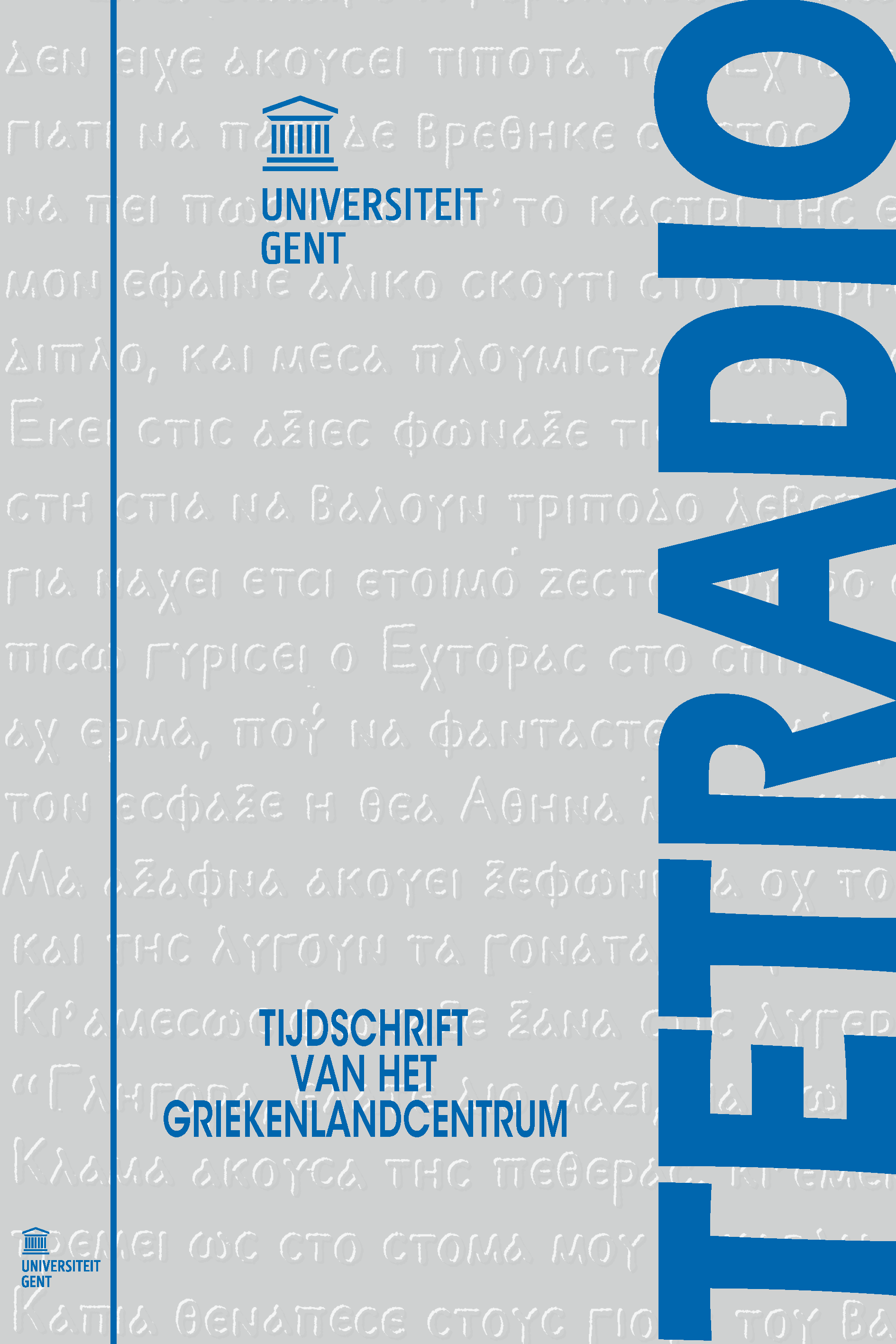De antieken voor elke Griek verstaanbaar!: Taalkwestie en vertaling in het 19de-eeuwse Griekenland
Abstract
Drawing on both a catalogue of all Greek translations of ancient Greek literature produced between 1800 and 1915 and a sample of (unknown) translator’s forewords and reviews, this article gives an overview of the 19th-century Greek debate on language and translation. The usual binary understanding of the Greek language question as a duel between ‘conservative’ supporters of katharevousa and ‘progressive’ champions of dhimotiki doesn’t fit the actual evolution and tremendous complexity of conflicting linguistic standards in the 19th century. Firstly, one finds out that in the 1860s the bare fact of translating ancient authors into katharevousa was deemed a progressive act and trespass against existing standards. In the 1840s and 1850s it was indeed common to argue that a Greek audience didn’t need any translation of ancient texts at all. Secondly, it is quite obvious that, from 1870 onward, the use of the vernacular language of popular poetry has been tolerated in translations of, among others, homeric poems, against the by then settled doctrine that ancient authors should be translated into katharevousa. Genuine polarisation didn’t enter into the translation debate before the 1890s, when Alexandros Pallis, following Psicharis’ theory, departed from “codified” dhimotiki as used in popular poetry, and translated the Iliad into the contemporary speech of the rural population.
How to Cite:
De Herdt, K., (2004) “De antieken voor elke Griek verstaanbaar!: Taalkwestie en vertaling in het 19de-eeuwse Griekenland”, Tetradio 13(1): 1, 7–34. doi: https://doi.org/10.21825/tetradio.91750
Downloads:
Download PDF
View PDF

